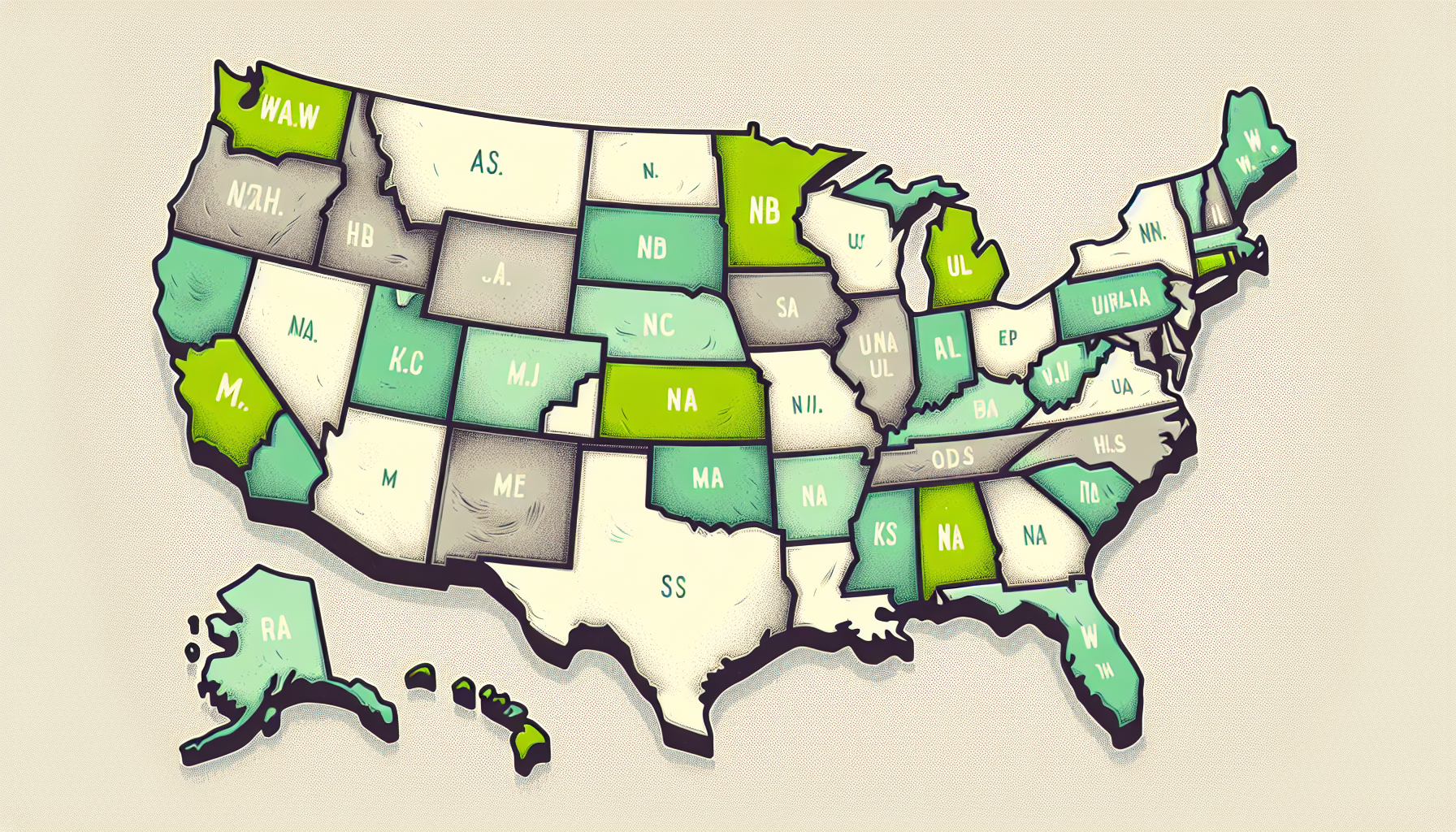Is sports betting even legal? In 2024, the answer is not a straightforward yes or no but varies across regions. This article provides a clear overview on where and how you can legally bet on sports, focusing on regional differences and online betting regulations.
Key Takeaways
- Sports betting in the US varies state by state, with over 30 states having legalized it and some states still resistant; individual states are responsible for their sports betting laws and regulations following the Supreme Court’s 2018 decision to overturn PASPA.
- Online sports betting is authorized in 24 states and comes with convenient registration, a range of secure payment options, and attractive promotions, though bettors should always understand the terms associated with these promotions.
- Despite the presence of offshore sportsbooks offering seemingly better odds and bonuses, they carry risks such as lack of regulation and legal protection, making legal and regulated sports betting platforms the safer and more responsible choice.
Is Sports Betting Allowed in the US?

Legality remains at the forefront of any discussion around sports betting. In the US, the legal status of sports betting is not uniform and varies from state to state.
After the Supreme Court struck down the federal ban, each state was granted the authority to legalize sports betting within its jurisdiction, leading to a patchwork of different sports betting laws and regulations across the country.
Learn How to Read Betting Odds!
Federal Ban Overturned
In 2018, the US Supreme Court made a historic ruling that set the stage for a new era in sports betting.
The Professional and Amateur Sports Protection Act (PASPA), a federal sports betting bill enacted in 1992 that effectively banned sports betting in most states, was declared unconstitutional on May 14, 2018.
This decision was a game-changer, giving individual states the power to regulate sports betting within their borders.
The case that led to this milestone was brought forth by New Jersey, challenging the constitutionality of PASPA and fighting for the right to legalize sports betting.
State Legalization Progress
Following the Supreme Court decision, numerous states took advantage of the situation to legalize and control sports betting by creating their own sports betting laws.
As of 2024, over 30 states have enacted sports betting legislation to authorize legalized sports betting. The regulations and available betting options differ from state to state, reflecting the diversity of the market and the varying approaches to regulated sports betting.
Some states have fully embraced online sports betting, offering a wide range of options for bettors, while others have opted for a more conservative approach, legalizing only retail sports betting.
However, not all states jumped on the sports betting bandwagon. There are states where sports betting is still illegal, including:
- Alabama
- Alaska
- California
- Hawaii
- Idaho
- Texas
- Utah
In these states, there has been little movement towards legalization, with some having strong opposition or little political appetite for such changes. As sports betting continues to evolve in the US, it will be interesting to observe how these states respond to the growing pressure to legalize sports betting.
Retail vs. Online Sports Betting
Online and retail sports betting represent two distinct facets of the sports betting landscape, each presenting its own set of experiences and conveniences.
As of now, 24 states along with Washington, DC have authorized online sports betting through the passing of an online sports betting bill, providing regulated options that have been approved for operation by state regulators. This is a testament to the rapid growth of online sports betting, which offers the convenience of betting from the comfort of one’s home or on the go.
Regarding payment options, US legal online sports betting sites usually provide a range of banking alternatives. Common options include PayPal, Venmo, and credit cards. However, it’s worth noting that cryptocurrencies are generally not accepted, with Wyoming being a notable exception.
Promotions are an integral part of the online sports betting experience, often serving as a major attraction for bettors. These promotions can include:
- Deposit bonuses
- Bonus bets
- No-deposit bonuses
- First-bet insurance tokens
Nonetheless, bettors must comprehend the terms and conditions of these promotions, as they might have specific requirements that must be met to receive the benefits.
The sign-up process for online sportsbooks is fairly straightforward in most states. Individuals can register either through their mobile device or the sportsbook’s website.
However, the specific process might differ slightly depending on state-specific regulations. For instance, in Tennessee, legal online and mobile sports betting are permitted without retail options. This flexibility and ease of access have significantly contributed to the popularity of online sports betting.
Offshore Sportsbooks: Risks and Alternatives
While the allure of offshore sportsbooks can be tempting, they come with some risks.
Offshore betting, while often overlooked due to its offshore status, can offer unique benefits to bettors. Operating in jurisdictions where sports betting is not strictly regulated, these platforms can provide a distinctive betting experience.
Here are some reasons why betting on offshore sportsbooks can be an appealing option:
- Competitive odds: Offshore sportsbooks often provide more competitive odds compared to domestic platforms, potentially leading to higher returns on successful bets.
- Attractive bonuses: These platforms frequently offer enticing bonuses and promotions to attract and retain bettors, which can enhance your betting experience and increase your potential winnings.
- Broad market coverage: Offshore sportsbooks often cover a wider range of sports and events globally, providing more betting options for users.
- Fewer restrictions: Some offshore betting sites may have fewer betting restrictions compared to regulated platforms, offering more flexibility to bettors.
- Privacy: For bettors who value privacy, offshore sportsbooks can provide a degree of anonymity not typically found on domestic platforms.
However, while these advantages can be appealing, bettors should always be aware of the potential risks associated with offshore betting. It’s always recommended to do thorough research and ensure the platform is reliable before placing any bets. Remember, responsible betting should always be a top priority.
How To Choose The Best Offshore Betting Website
There are a lot of websites that offer sports betting as offshore sportsbooks but how to choose the best?
We covered this topic in our dedicated article which you can find below.
Learn about all the pros and cons of those services and decide whether maybe they are the best suit for you!
Best Offshore Betting Sites In 2024
Betting on NBA and NCAA Events
In the realm of sports betting, the National Basketball Association (NBA) and the National Collegiate Athletic Association (NCAA) events are hot favorites among bettors. Here are some of the most popular events:
- NBA Finals: This is the championship series where the Western and Eastern conference winners battle it out for the prestigious Larry O’Brien Trophy.
- NBA Christmas Games: A holiday tradition, these are a series of games played on Christmas Day, featuring high-profile teams and star-studded matchups.
- NBA All-Star Game: An exhibition game hosted in February, featuring star players from the NBA, chosen by fans and coaches.
- NCAA March Madness: This is a single-elimination tournament held each spring, featuring 68 college basketball teams vying for the national championship.
- NCAA Final Four: The climax of the March Madness tournament, where the final four teams compete to determine the champions.
- The Big Dance: Another name for the NCAA March Madness, referring to the final stages of the tournament.
Each of these events attracts a significant influx of bets, offering a variety of betting opportunities for sports enthusiasts in every shape and form. Online betting, in-person sports betting, offshore betting – you name it.

Mobile Apps for Offshore Sports Betting Sites
- Global Access: Bettors can place their bets from anywhere around the globe, at any time, making betting truly borderless.
- Easy registration and login: These apps often have simple and swift registration and login processes to provide an effortless betting experience.
- Real-time betting options: Offshore apps offer live betting options, allowing bettors to place bets as the action unfolds.
- User-friendly interfaces: These apps are designed to be intuitive and easy to navigate, enhancing the user experience.
However, while offshore betting apps offer unique benefits, they also come with their share of risks due to the lack of strict regulations compared to domestic platforms. To mitigate these risks, bettors should:
- Verify the app’s reliability: Before placing any bets, it’s crucial to ensure that the app comes from a trusted and reliable offshore sportsbook.
- Check for security measures: Good offshore betting apps should employ security measures like SSL and encryption technologies to protect users’ data.
- Understand the app’s terms and conditions: It’s essential to read and understand the app’s terms and conditions before placing any bets to avoid potential misunderstandings or disputes.
These apps have earned a reputation for offering a seamless and enjoyable betting experience, making them a popular choice among offshore bettors.
Struggling with keeping up with the NBA? Read this!
Responsible Gambling and Player Safety

While sports betting can be an exciting and rewarding activity, it’s important to approach it responsibly. Responsible gambling is about promoting safer gambling behaviors, advocating for policies, and addressing problem gambling rates among sports bettors.
It’s important to recognize the signs of problem gambling, which can include:
- Excessive wagering on sports
- Adverse effects on mental well-being
- Financial instability
- Interpersonal relationship issues
There are numerous resources available to promote responsible gambling.
Organizations like the National Council on Problem Gambling offer a range of resources, including answers to frequently asked questions and a self-assessment tool for gambling behavior.
Similarly, platforms like BettingUSA provide a guide on problem gambling resources and policies for responsible online betting.
Legal sports betting platforms in the US have implemented several measures to promote responsible gambling and player safety. These include:
- Compliance with regulations
- Maintaining secure betting platforms through cybersecurity measures
- Adhering to wager and time limits
- Demonstrating a commitment to responsible gambling and player safety
Sports Betting Taxation and Regulations
Like any other form of income, sports betting winnings are taxable in the US.
It’s important to be aware of this obligation and understand the regulations around it to avoid any surprises come tax season. Gambling winnings, which include profits from sports betting, are considered taxable income.
The federal tax rate for gambling winnings in the US is generally 24% if the winnings require reporting on a Form W-2G. This means that if you have a big win, a portion of it will go to the taxman.
When it comes to reporting sports betting winnings for tax purposes, these winnings need to be reported as gambling income on Form 1040, Schedule 1.
In cases where the winnings exceed $5,000, up to 24% may be withheld for federal income tax. It’s advisable to consult with a tax professional to ensure you’re complying with all tax obligations related to sports betting winnings.
Learn about Offshore Betting Payment Methods!
Emerging Trends in Sports Betting

Progress in technology and changes in market dynamics are influencing the future of sports betting. Innovations such as:
- Mobile betting apps
- Virtual reality experiences
- Big data
- Artificial intelligence
- Blockchain
are significantly enhancing the betting experience. These technologies offer interactive and immersive ways to place bets, enable more accurate predictions, provide personalized experiences, and improve user engagement.
Legal sports betting has significant implications for expanding markets. It brings numerous benefits, including:
- Contributing to the gross domestic product
- Boosting tourism
- Creating employment opportunities
- Increasing revenue in the sports industry
- Positively impacting the local economy and casinos
- Generating tax revenue
Moreover, it enhances fan engagement and sports viewership, adding another dimension to the enjoyment of sports.

Summary
The landscape of sports betting in the US has undergone a significant transformation over the past few years, evolving into a dynamic and diverse industry.
From the overturning of the federal ban to the legalization progress across states, the rise of online and retail betting, the emergence of mobile apps, and the ongoing commitment to responsible gambling, sports betting is a vibrant arena full of opportunities and challenges.
As the industry continues to evolve and adapt to new trends and technologies, it promises to offer an exciting and rewarding experience for bettors.
Frequently Asked Questions
Is sports betting legal in the US?
Yes, sports betting is legal in more than 30 states in the United States, with some states only allowing in-person betting. As of now, a majority of states have passed legislation to enable sports betting.
Why is sports betting illegal in Texas?
Sports betting is illegal in Texas due to the state law prohibiting “lotteries and gift enterprises”. Efforts to legalize sports betting would require amending the state constitution, which is a complex and lengthy process.
Is sports betting in FL legal?
Yes, sports betting is legal in Florida, with a minimum betting age of 21, and online sports betting resumed on November 7, 2023.
Why is sports betting now legal?
Sports betting is now legal because the U.S. Supreme Court overturned the federal ban on sports betting in 2018, allowing states to create and enforce their own sports betting laws. This decision has resulted in the legalization and operation of sports betting in the majority of states and Washington, D.C.





